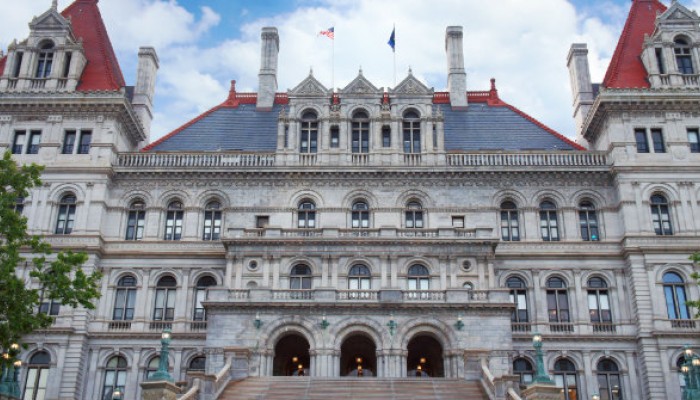Cross-posted on The Daily News
Former Virginia Gov. Bob McDonnell was convicted of bribery. He was sentenced to two years in prison for taking cash, ball gowns, a Rolex watch, free vacations and even catering for his daughter’s wedding from a businessman peddling a dietary supplement. On Monday, the U.S. Supreme Court overturned the conviction and made it harder to prosecute public officials for corruption.
For scandal-scarred New York, the ruling raises big questions about our own efforts to end corrupt government: Will recent convictions of politicians like former Assembly Speaker Sheldon Silver and former Senate Majority Leader Dean Skelos also be overturned? How can we restore integrity to state government?
The good news is the court’s decision in McDonnell’s case was narrower than some expected. The court made clear that McDonnell may be retried if there is evidence sufficient to show he took official government action in exchange for the cash and gifts he received. But the decision underscores the dire need for comprehensive, front-end reforms to prevent the corruption or appearance of corruption by wealthy special interests over what is, after all, the people’s government.
The stakes in McDonnell’s case were high. The former governor, once touted as a top-tier presidential prospect, argued that the things he had done for the businessman, like tout the benefits of the supplement to state agencies and arrange a few meetings, were not “official action.” Instead, McDonnell’s supporters maintained that he simply helped a constituent, and nothing concrete was accomplished that could be characterized as corruption.
But McDonnell’s advocates also took a further step before the high court. They said that McDonnell’s benefactor had a First Amendment right to purchase special access to the governor. Essentially, they argued that Citizens United and later cases deregulating campaign spending held that freedom of speech protects the selling of political power for money. The results of their proposed rule would have expanded the First Amendment far beyond what is necessary to ensure citizens may freely discuss political issues, opening the door to corruption.
We should rest easier because the court did not adopt McDonnell’s First Amendment arguments. Instead, all eight justices joined an opinion holding that the trial court’s jury instructions were too broad because they did not specify what type of government activity could qualify as an “official action” necessary for a corruption conviction. The Court was worried that without more specificity, “public officials could be subject to prosecution, without fair notice, for the most prosaic interaction.” Its opinion concluded that under current law, “merely setting up a meeting” does not qualify as a punishable “official action,” though in some cases it may serve as evidence that a corrupt agreement had been made.
McDonnell’s case was difficult because the Court had to balance the goal of preventing corruption against setting clear rules for politicians to serve their constituents, donors and non-donors alike. As Chief Justice John Roberts wrote, “[T]here is no doubt that this case is distasteful; it may be worse than that. But our concern is . . . with the broader legal implications” of a vague bribery law.
Even though the McDonnell ruling had its limits, some good-government advocates worry that politicians now have a green light to sell their time to the highest bidder, since “merely setting up a meeting” can be a protected “unofficial” act not subject to anti-graft laws.
But the best antidote to corruption in New York and elsewhere does not require legalistic debates about what constitutes corruption. Instead, corruption should be cut off at its source: large campaign contributions and the loopholes that make a mockery of New York’s financing limits. And lest anyone worry that any reform would run afoul of the Supreme Court’s campaign finance rulings, such limits have been deemed constitutional.
For instance, an elected official is much less likely to trade favors, such as setting up meetings, for cash if it is illegal to accept big checks in the first place. Many states, including New York, already limit or prohibit gifts to politicians, and McDonnell’s case likely never would have happened if Virginia was one of them.
The heart of New York’s own corruption problems, however, lies with campaign contributions. Wealthy benefactors can exploit legal loopholes to funnel millions to politicians. First, the limits on campaign donations to statewide candidates are already high: each donor can give up to $65,100 per election cycle per statewide candidate, more than most New York households make in a year. And if that’s not enough, the rich can create an unlimited number of limited liability companies (LLCs) and give a single candidate $65,100 from each one.
As a result, special interests can give millions to candidates, who are then somehow expected to weigh these donors’ interests equally with those of all New Yorkers once in office. As we’ve seen, that’s not the way it works. Although large contributions from LLCs and the rich have been at the center of recent corruption trials, the sad reality is that virtually all acquisitions of influence result in no legal action.
McDonnell’s case and our own experience in New York demonstrate that we cannot rely on corruption prosecutions to protect the integrity of democracy. Instead, we must work to pass common-sense reforms and close the loopholes that make it legal for our politicians to receive astonishing amounts of money from a wealthy elite.
(Photo: Thinkstock)

